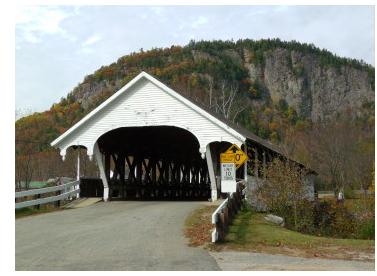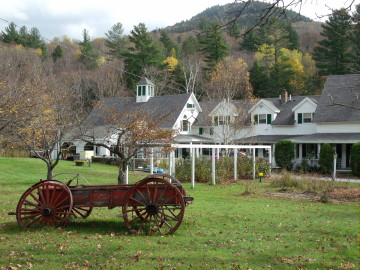Stark is remote, charming and unspoiled. Several mountains in Stark tower above the 3,000 foot mark, including
Mount Hutchins, at 3,730 feet.

Stark was originally called "Percy," named after Hugh Percy, the First Duke of Northumberland, a politician and advocate of education in Britain. The town was renamed after
General John Stark, whose famous quote, Live Free or Die, became the state motto.
The town is famous for its picturesque cover bridge that spans the Androscoggin River. The bridge, built in 1862, was nearly replaced with a steel bridge in the 1950s, but outraged residents fought for and won its preservation.
Many people don't know that Stark was the site of a German POW camp during World War II. Some 250 prisoners were detained , and they functioned as laborers in the logging and timber industry. Their experience is documented in the book
Stark Decency: German Prisoners of War in a New England Village by Allen V. Koop (1988).

The Stark Village Inn, 16 Northside Road, is a bed and breakfast that should be pictured next to the word "delightful" in the dictionary.
More diverse dining and lodging are a bit of a trek. Groveton is about ten miles away, and offers both dining and lodging. Additional dining is available in Berlin (about 18 miles), and dining and lodging are available in Gorham (about 25 miles).
If you long for an escape from pressure, tension and urban blight, Stark should be your destination.